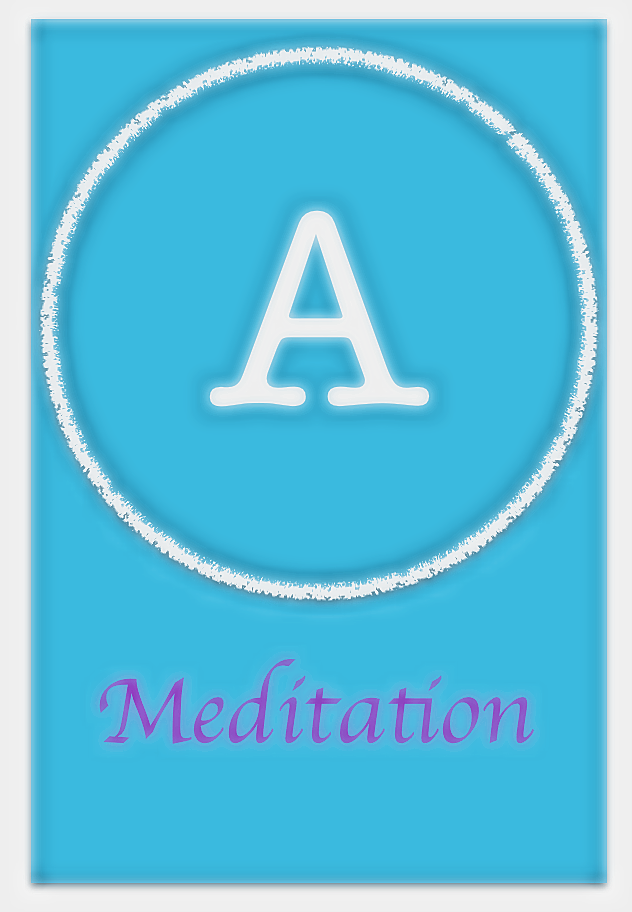
First Published on 6/30/2017
Updated on 9/2/2019
In the month of June 2017, I have shared the articles about meditation and its effectiveness in helping the racing thoughts in depression and anxiety on my Facebook Page. It prompts me to think about sharing with you the apps I had used to help me with my meditation when I first started meditating.
Research have found meditation very helpful with coping depression, anxiety, and trauma. I also added the articles in the end of this entry if you are interested in further reading about the impact of meditation and coping with depression, anxiety and yoga.
So, here are some apps I have tried:
1. Headspace:
This is the first meditation app I have tried. You can use the first 10 days for free, and that was the main reason I tried it. I found it very useful in the first 10 days when I was getting used to meditation. The developer used video to show and to introduce what’s meditation and why it is working to calm the mind. I also liked the idea of 10 minutes a day and how he introduced the learners into meditation by observing the sound, the physical sensations, and to let your thoughts go crazy.
You have to buy the app after 10 days. So, I kept going to the first 10 days and eventually stopped using it. I introduced this app to some clients and they bought the app after 10 days. They reported the app very helpful to guide them through anxiety and racing thoughts.
2. Meditation timer:
After the Headspace, I found this app. It’s a simple timer. That’s it, just a timer with a function to set up the reminder to medicate. I used it for a few years on and off. I like it because it is simple and it helps to remind me “time to medicate” with the notification setup. I can set up the time to meditate depending on the time I have. For example, in between seeing clients, I can set the time to meditate for few minutes.
3. Breathe:
This is the one I started to adapt to my practice recently. I “fell of the wagon” from meditation for about 18 months. Last year, I tried to meditate consistently but haven’t been successful. I ran into this app accidentally while I was playing with my new iphone. The new iPhone has a “health” app and it introduced me to this app.
What I like about this app is that it has the meditation timer as I needed. You can check in before the meditation (physical, mental, and emotional), and it will give you some guide meditation that suit with your situation. It also counted how many times you have meditated and how many days you meditate consecutively.
Somehow, the accumulation of the time and days I have meditated motivated me to continue to meditate. I also like how it gives you few guided meditation in different areas. If you want to have the full access, you can upgrade to the premium. However, I don’t have that needs and still find the app suites my needs.
4. Calm:
This is another app coming out from the iPhone app suggestion. I compared this one and “Breath” and settled with Breath.
(The following paragraph is uppdated pn 9/2/2019.)
A very close friend told me that she has been using Calm and really loved it. So, I decided to give it a try and sign up for a year.
I like the app enough but not in love with it. Surprisingly, what really works for me is the “sleep” section where the app read a story to help you falling into sleep. For some unknown reason, it actually helps! I found myself falling into sound sleep within 5 minutes of lying in bed!
(The following paragraph is uppdated pn 9/2/2019.)
I fall out meditation on and off in 2018. So, I decided to join a meditation meetup to help myself get back to regular meditation.
One of the members in the meditation group suggested this app and I gave it a try. This app has been the one I am consistenly using on the daily basis.
What I really like about this app is its combination of guided meditaiton, bedtime story, and timer. It has teachers from all over the world and in different languages to provide guided meditation. Whem my mind is too all over the place, I use the guided meditaiton or chanting recordings to help me grounded. When my mind is much more steady, I can use the timer and to watch my breathing.
In addition, it also offeres different classes from diffferent teachers.
Most of the resources via the app are free. You can join the membership to help support the teachers, the app, and to get the classes that are not free.
6. Other resources: University of Virginia Mindfulness Center:
When I first started meditating, I download their guided meditation to help me
For your naysayers out there who think meditation is a voodoo practice, the Mindfulness Center just proves that there is scientific evidence to show meditation does work to assist the depression and anxiety.
7. Some research studies for your reference:
This article summarized two research studies to prove that meditation does work!
Last but not the least, if you can find a local meditation group to join, that would be fantastic. I personally found it helpful to have the “peer pressure” to keep me going.
What types of app do you use and how do you find it useful or not useful? I would love to hear from you.
Readings:
Different Types Of Meditation Change Different Areas Of The Brain, Study Finds
6 Strategies That Science Actually Shows Are Effective For Depression
8 Science-Based Tricks For Quieting The Monkey Mind
It Works: New Study Outlines What Meditation, Yoga, & Prayer Can Do To The Human Body

2 Responses